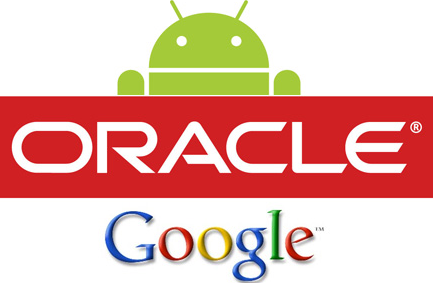Eric Schmidt Insists Google Only Used API Names

Oracle has grilled Google’s executive chairman Eric Schmidt in court, who insisted only the names of the APIs were used
It was the turn of Google executive chairman Eric Schmidt to testify in court, and he used the opportunity to defend his company’s decision to go its own way in using Java to help construct its Android mobile device operating system.
Schmidt made his first appearance in the nine-day-old copyright-infringement lawsuit brought by Oracle, in which the database and enterprise applications maker claims Google deliberately and illegally used 37 pieces of the Java platform from Sun Microsystems.
Names Only
Oracle is seeking $1 billion (£620m) in damages and a possible injunction against Google to use Java for Android.
But Google contends it did not need a specific Oracle or Sun license to do what it needed to do to design and construct Android.
Oracle acquired Sun in 2010 and is the global maintainer of the open-source Java programming language and all its tools. The central issue in the case revolves around application programming interfaces, which instruct the use of the code and are a major part of the Java franchise. Oracle contends that APIs are not part of the giveaway open-source code and that Google should have taken out a licence to use them.
However, Schmidt told the court that Google used only the names of the APIs, not the APIs themselves.
 “An interface is a specification. A name,” Schmidt told Oracle lead attorney David Boies when Boies asked him for a definition of an interface. “There’s a collection of those names that forms the standard that Java uses. We, Google, implemented those interfaces in our own way.”
“An interface is a specification. A name,” Schmidt told Oracle lead attorney David Boies when Boies asked him for a definition of an interface. “There’s a collection of those names that forms the standard that Java uses. We, Google, implemented those interfaces in our own way.”
“You copied the 37 Sun Java API specifications?” Boies asked in response.
“We used the interface names, which is how one does this, and then did our own implementation of those services,” Schmidt said.
“Are you saying that the only thing you copied was the names?” Boies continued. “Yes,” Schmidt said.
No Agreement
Boies asked Schmidt another question about the technical nature of the APIs, but Schmidt said he wasn’t briefed on it and couldn’t answer.
Boies reiterated to the 12-person jury and presiding Judge William Alsup that Google is the only company using Java APIs without securing a license. Oracle CEO and founder Larry Ellison also made that claim on the second day of the trail.
Ellison testified 17 April that “Google is the only company I know that hasn’t taken a licence for Java … I met with [former Google CEO, now Executive Chairman] Eric Schmidt in 2010 to discuss a joint project in which Google would use Oracle’s version of Java in its Android software for smartphones rather than their own version of Java.”
But the companies never set down an agreement, Ellison said.
Sun Negotiations
Schmidt, recounting some history of the Android project under questioning by Google attorney Robert Van Nest, said Sun had asked for $30 million (£18.5m) to $50 million (£31m) in 2006 to jointly develop a mobile platform with Google. A deal of this nature would have saved Google time in getting Android to market, Schmidt said.
“We would have paid that simply to resolve it,” Schmidt said.
But those negotiations also fell through. Android development group leader Andy Rubin testified that while Google wanted to make the software platform open-source, Sun wanted to impose some restrictions to which Google could not agree. Under Oracle’s ownership, this has not changed.
Google then elected to develop Android on its own, which it launched in 2007. Schmidt, who was an executive at Sun for several years before moving to Google, said that Sun Chief Executive Jonathan Schwartz never said anything about Google needing a Java license for Android.
In fact, Van Nest displayed a blog post from Schwartz that encouraged Google’s Android work.
Google has argued that Oracle launched the lawsuit in 2010 only after Oracle decided it would be unable to develop a smartphone on its own. Ellison testified that Oracle did at one time consider acquiring both Research In Motion, maker of the BlackBerry smartphone, and Palm Computing.
The case in federal court in San Francisco, which began 16 April and is expected to continue well into June, ultimately will determine what is a fair-game open-source tool and what is not. APIs are made up of software, specifications and techniques. Techniques cannot be copyrighted.
Oracle claims in the lawsuit that the “specifications and implementations of the APIs are not a method of operation or system.”
Do you know Google’s secrets? To find out, take our quiz.